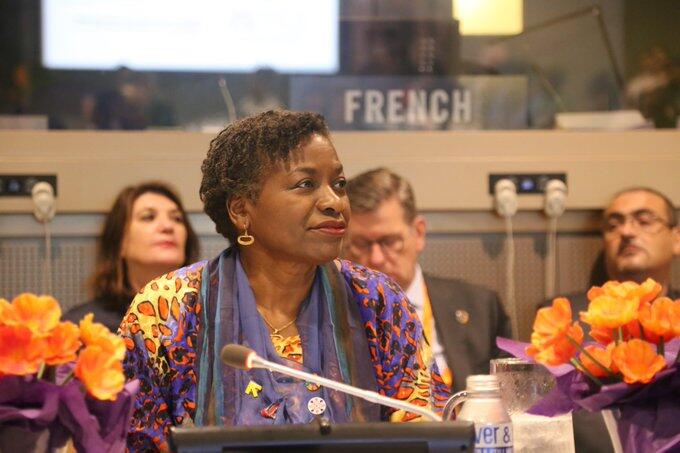The mental health consequences of crisis and conflict are serious, yet often overlooked.
Those caught in humanitarian emergencies suffer psychological trauma and invisible wounds as devastating and crippling as any physical harm. Survivors can face long-lasting challenges to their health and well-being, and too often, suffer in silence.
As crises around the world become more widespread and displacement reaches record levels, UNFPA is committed to scaling up access to mental health care and psychosocial support for women and girls in humanitarian settings.
From child and forced marriage to unintended pregnancy to intimate partner violence to rape and trafficking, women and adolescent girls face increased risk to their health and well-being. They need increased support.
We are working closely with humanitarian and development partners to integrate mental health and psychosocial support into our response to gender-based violence (GBV) in emergencies and as part of our lifesaving sexual and reproductive health services.
This includes specialized care centres and safe spaces where those who have experienced trauma – including displacement, violence and loss – can heal, find hope and begin to live again.
As one survivor of abuse said after six months of treatment at a UNFPA psychological care centre in Yemen: “I feel I have a purpose now.” Today, she volunteers at the centre, sharing her experiences with other survivors.
On World Mental Health Day, UNFPA calls for increased efforts to address the growing psychosocial needs in humanitarian settings and more openness about mental illness.
By stepping up our support and removing the stigma surrounding mental health, we can help lift the burden of trauma off the shoulders of those who have already suffered enough.
Together, let’s put people first and give them what they need for a sustainable future of health and well-being. One person at a time, we can rebuild lives, communities, and entire countries.


